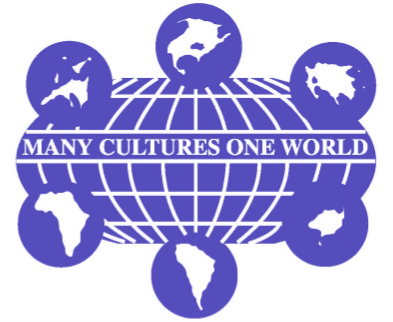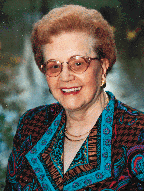Madeleine M. Leininger, PhD, LHD, RN, CTN, FAAN
Deceased 2012.
Last Employment:
Professor Emeritus of Nursing and Anthropology, College of Nursing, Wayne State University, Detroit, MI
Adjunct Professor, College of Nursing, University of Nebraska Medical Center, Omaha, NE
Founder of the Transcultural Nursing Society and Board Member from inception until 2010.
Leader in the Society for Human Caring Research.
Expertise Areas:
Expertise Areas
Transcultural Topics
History of founding and evolution of the Transcultural Nursing Society, The Theory of Culture Care Diversity and Universality, Transcultural nursing education, basic and graduate, Global understanding of all cultures, Human caring research
Cultural Groups: Gadsup of New Guinea, African Americans, Sudanese, Anglo-American, Eastern European
Research Topics: Maternal-Child Health, Childrearing, Care of Elders, Fathering Protective Care, Mental health, Collaborative Care
Research Methodology: Ethnomethodology, Ethnonursing, Ethnoscience, Ethnography
Languages spoken, read/write*
English Pidgin of New Guinea
Select Publications Journal Articles:
Journal of Transcultural Nursing –multiple articles 1989-2012.
Books: Leininger, M.M. (1970). Nursing and anthropology: Two worlds to blend. New York: John Wiley & Sons.
Leininger, M.M. (1978). Transcultural nursing: Concepts, theories and practices. New York: John Wiley & Sons.
Leininger, M. M., & McFarland, M. R. (2002). Transcultural nursing: Concepts, theories and Practices (3rd ed.). New York: McGraw-Hill.
Leininger, M. M., & McFarland, M. R. (2006). Culture care diversity and universality: A worldwide theory of nursing (2nd ed.). Sudbury, MA: Jones and Bartlett.
Archives
Florida Atlantic University Christine E. Lynn College of Nursing, Archives of Caring in Nursing. The Madeleine M. Leininger Collection on Human Caring and Transcultural Nursing, circa 1950-2012. nursingarchives@fau.edu
Languages spoken, read/write*:
English and beginning Spanish
My mentorship journey with Madeleine was always very much a shared and reciprocal experience. I remember my days at Wayne State in the early 90s as the Golden Years of work with the culture care theory with that famous Sunrise and qualitative methods. From the middle 80s to the mid- 90s, we were a community of committed scholarly graduate students working on our dissertation studies guided by Dr. Leininger and her theory with the use of the ethnonursing method. Madeleine was a strong leader, and she cared for us and she inspired us to develop our research within the qualitative paradigm. In fact, her leadership was so strong that we grad students who worked with her often compared her entrance into a room of faculty, administrators, and students with all of us trailing behind her to Moses parting the Red Sea. All of us knew how important a strong dissertation chair was (and still is) for the successful completion of a doctoral study. Well, we had Madeleine and there was no stopping her students at the water’s edge; we all finished our dissertations and graduated according to plan! Transcultural Nursing scholars began with Dr. Beverly Horn who conducted the very first transcultural nursing study under Dr. Leininger on the care of Muckleshoot people. Then the late Dr. Fran Wenger studied caring and the Amish was the first student at Wayne to finish her PhD with Madeleine; I still consider her dissertation the outstanding exemplar of those early studies. Dr. Linda Luna did her study on care with the Lebanese-American community, and I view her study the best example using Leininger’s phases of ethnonursing analysis of qualitative data. Dr. Joan McNeil traveled to Uganda to study the Bagandan grandmothers who were caring for orphan children whose parents had died of AIDS; the late Dr. Marjorie Morgan studied the prenatal care of African Americans in the urban north and rural south of the United States. Dr. Edie Morris, Madeleine’s last graduate student at Wayne, wrote about her discovery of the unique caring and compassion of urban gang members. Under Madeleine’s guidance, over 40 doctoral and master’s students at Wayne discovered caring knowledge of diverse cultures and contributed that knowledge to our discipline and made that knowledge known for nurses and other healthcare professionals to use in their practices. I think back to those late nights working in Madeleine’s office both as her teaching and her research assistant. She convinced her secretaries and office assistants and any graduate students she could entice to put in long hours. We all have many fond memories of the famous regulated and limited breaks (Madeleine was never one to condone the waste of time!), late night adventures of scurrying across the street to the local greasy spoon to get a bite to eat, getting a TCN Journal to press, and working on analyzing research data into the wee hours of the morning. In fact, that rising sun in her theory was often viewed out of the east windows of her corner office after a long night’s work! We even worked Sundays; she told us it was okay because it was the Lord’s work, and we bought it! One faculty member at Wayne declared that when everyone else went to lunch, Madeleine wrote another book! It was sort of true. She was the most productive of all the faculty: She taught more classes, chaired more dissertation committees, spoke at more events, conducted more research, and published more than anyone else! Well, after I celebrated my graduation and earning my PhD in May 1995, in the same month we celebrated Madeleine’s retirement from Wayne State, but there was no rest. The work continued! Somehow she talked me into being the editor of the Journal of Transcultural Nursing: We wrote together and published articles, books, and DVDs; we traveled the world together (Sweden, England, Australia, Canada and all over the U.S.) speaking and spreading the transcultural word and her culture care theory and ethnonursing method for nursing practice, education, and research. Madeleine gave us “the light” to see in the form of the culture care theory and her famous Sunrise that depicts the theory and informs our practice! I offer my caring theme that “Care is continuing the important work of Dr. Madeleine Leininger.” The sun rises and just as predictably her work continues; we stand on her shoulders. She taught, inspired, nurtured, and cared for us and now we do the same for others. That was her plan all along and it is working! Thank you, Madeleine!
Marilyn R. McFarland, PhD, RN, FNP-BC, CTN-A

